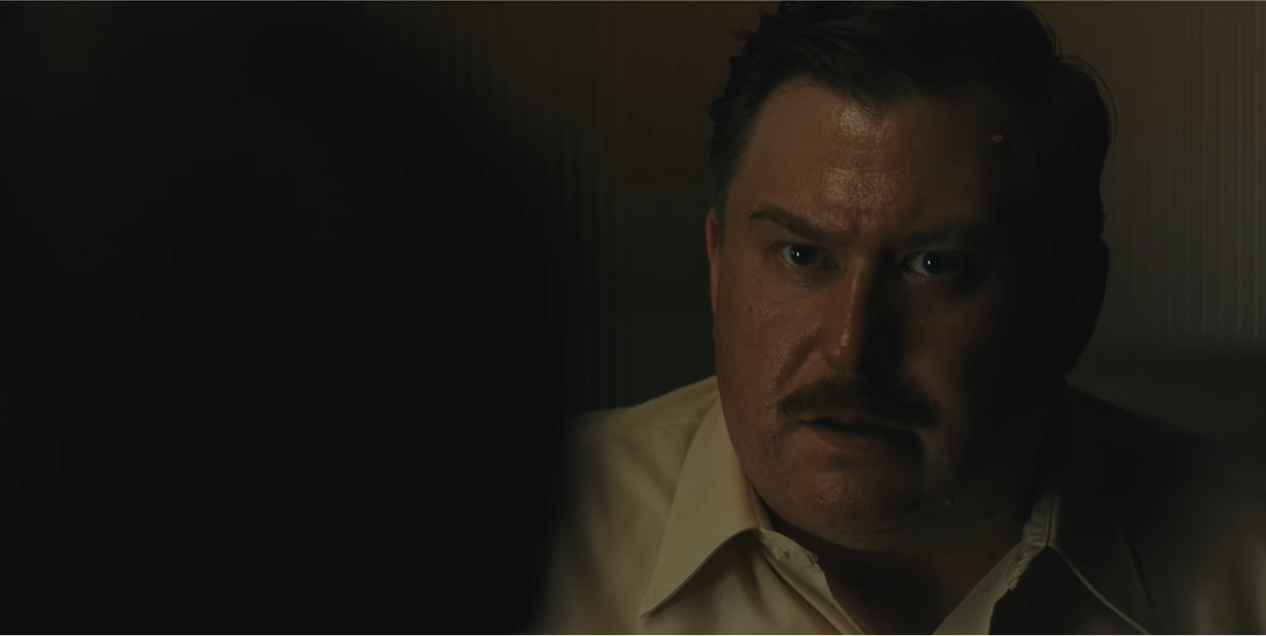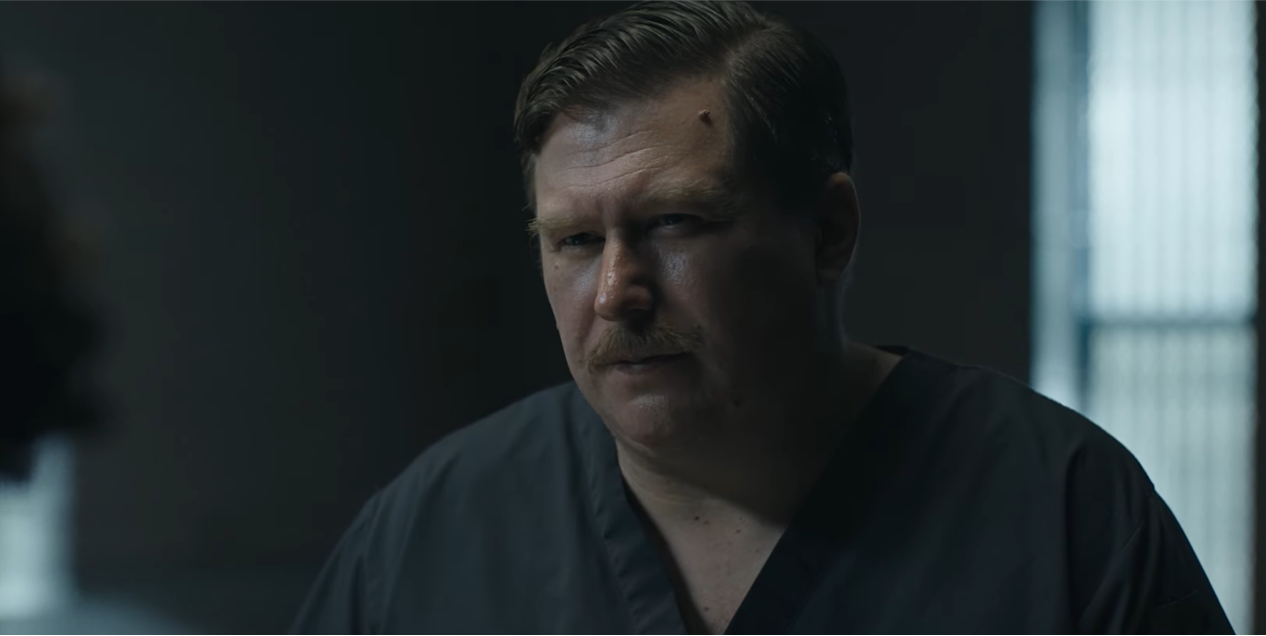Created by Patrick Macmanus, Peacock’s ‘Devil in Disguise John Wayne Gacy’ follows its titular serial killer’s life from his arrest to his unraveling, capturing each key event in his series of crimes that led to the final confirmed victim count. The series also highlights the devastating toll Gacy’s crimes took on the families of his victims, grounding the story in empathy rather than spectacle. As one of the most infamous people in the world, Gacy often felt that his public perception overshadowed his own account of his life.
The clash comes to a head when his sexuality is brought into question as the police officers struggle to piece together the evidence at hand and create a believable turn of events, wherein the emerging patterns in Gacy’s crimes reveal psychological patterns that some allegedly interpret through the lens of his sexuality. However, whether those patterns reflect or are informed by Gacy’s sexual interests has long been debated, and this crime thriller narrative is no different. SPOILERS AHEAD.
John Wayne Gacy Affirmed on Several Occasions That He Was Bisexual
The most direct answer comes from the conversation Gacy had with Alec Wilkinsonin, a writer with The New Yorker. When the subject of liberal values came up during the interview, the serial killer declared that he was bisexual, stating: “I’ve been married twice, engaged two other times, and shacked up a few times, but they always try to portray me as homosexual. I’m bisexual.” In the same breath, he continued, “No man has ever got anything from me above the waist. So why do they call me a homosexual? I think sex is overrated. My mother told me about sex; my father never did. She said Try to make it an act of love and never force yourself on anyone. And I never have.”

While Gacy’s words seemingly put a full stop on the discourse surrounding his sexuality, several details, such as his claim of never raping anyone, have been confirmed to be false under the court of law. As such, the validity of all of his statements is put into question in the same vein. Notably, Gacy also revealed his bisexuality to his wife, Carole Hoff, sometime around 1975. While the reports state that she initially did not take his words seriously, Hoff soon began to take note of her husband’s repeated, long periods of absence. Things escalated further when she reportedly discovered explicit materials involving men and noticed Gacy spending time with younger males in the garage. While these details reiterate Gacy’s bisexuality, they also suggest that his pattern of targeting young males was more reflective of predatory behavior than sexual orientation.
The Show’s Rendition of John Wayne Gacy Uses a Psychological Lens to Explore His Sexuality
Given that the show’s rendition of John Wayne Gacy heavily borrows from the real-life accounts surrounding the serial killer, it does not shy away from adding a creative flair to the narrative. To that end, it takes several details, often including Gacy’s confessions, and repurposes them into intense sequences illustrating his modus operandi. In one such scene, Gacy lures one of his victims to his home and brings up the topic of being gay. Before long, he reveals that he has experienced oral sex from men before, and quickly adds that he imagines women in those moments to derive sexual pleasure.

The final detail is especially relevant, as the psychiatrists within the story believe it to be a sign of Gacy repressing his gay self. To that end, the series’ take on Gacy’s acts of sexual violence and murder is depicted as expressions of self-destruction tied to inner conflict. The show references Gacy’s real words on his sexuality on two occasions, incorporating both his interactions with his wife and, later, the larger public sphere of information. In the former case, the show reimagines that Gacy’s family fell apart when his first wife learnt of Donald Vorhees’ rape and abuse. While the show maintains that timeline, it also explores how personal upheavals, such as his divorce, may have influenced his mental state.
Over the course of the episodes, Gacy distances himself from being called gay numerous times and profusely expresses that he is bisexual. Within the narrative of ‘Devil in Disguise: John Wayne Gacy,’ this differentiation has little impact on his public identity, and it soon becomes a source of frustration for him. As such, while the story employs details from the real world, the manner of presentation is markedly different. We’d like to reiterate that while his crimes involved male victims, psychologists have long maintained that Gacy’s violence stemmed from power and control, not his sexual orientation.
Read More: Is Chad Powers a True Story? Is Russ Holliday Based on a Real Football Player?


You must be logged in to post a comment.